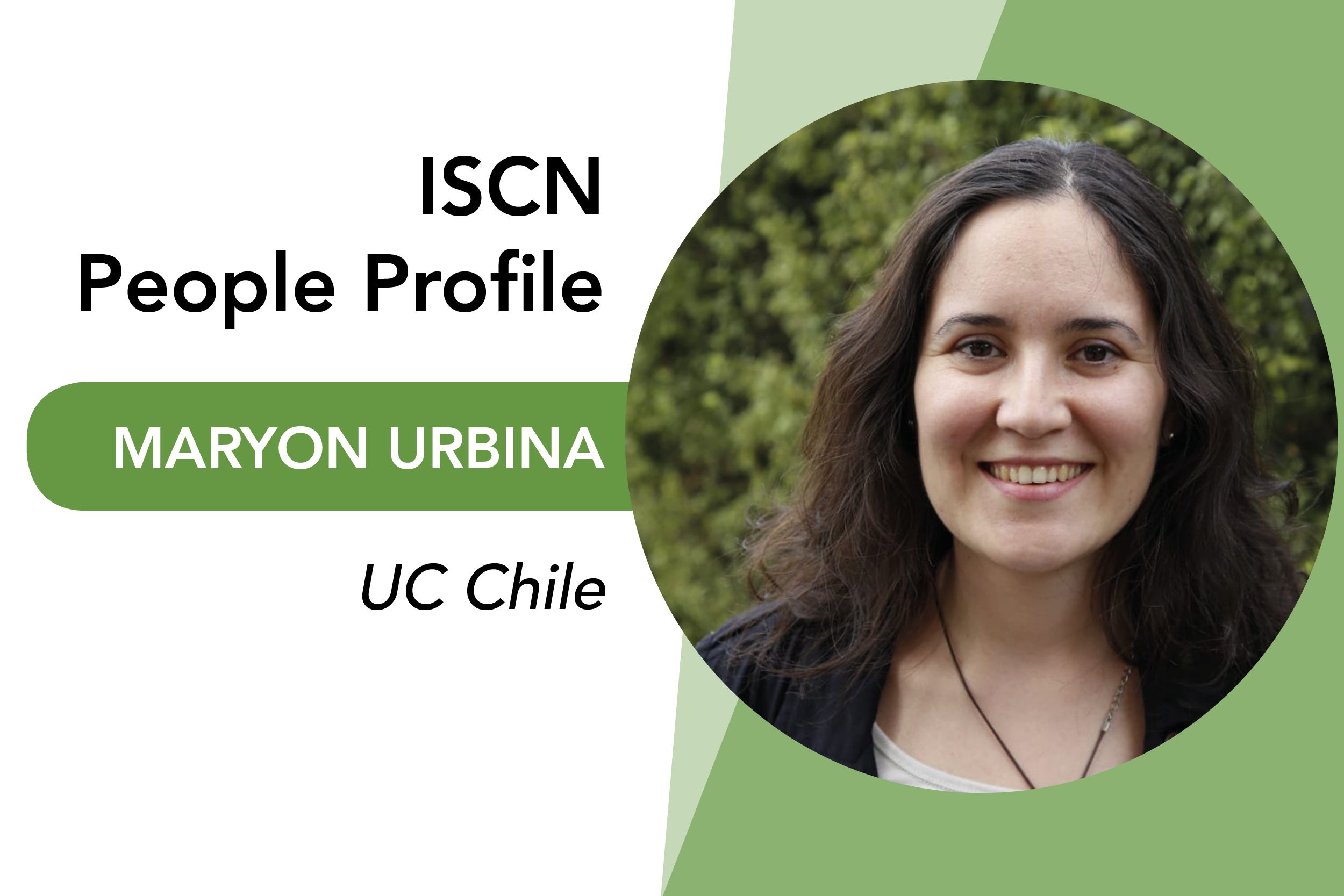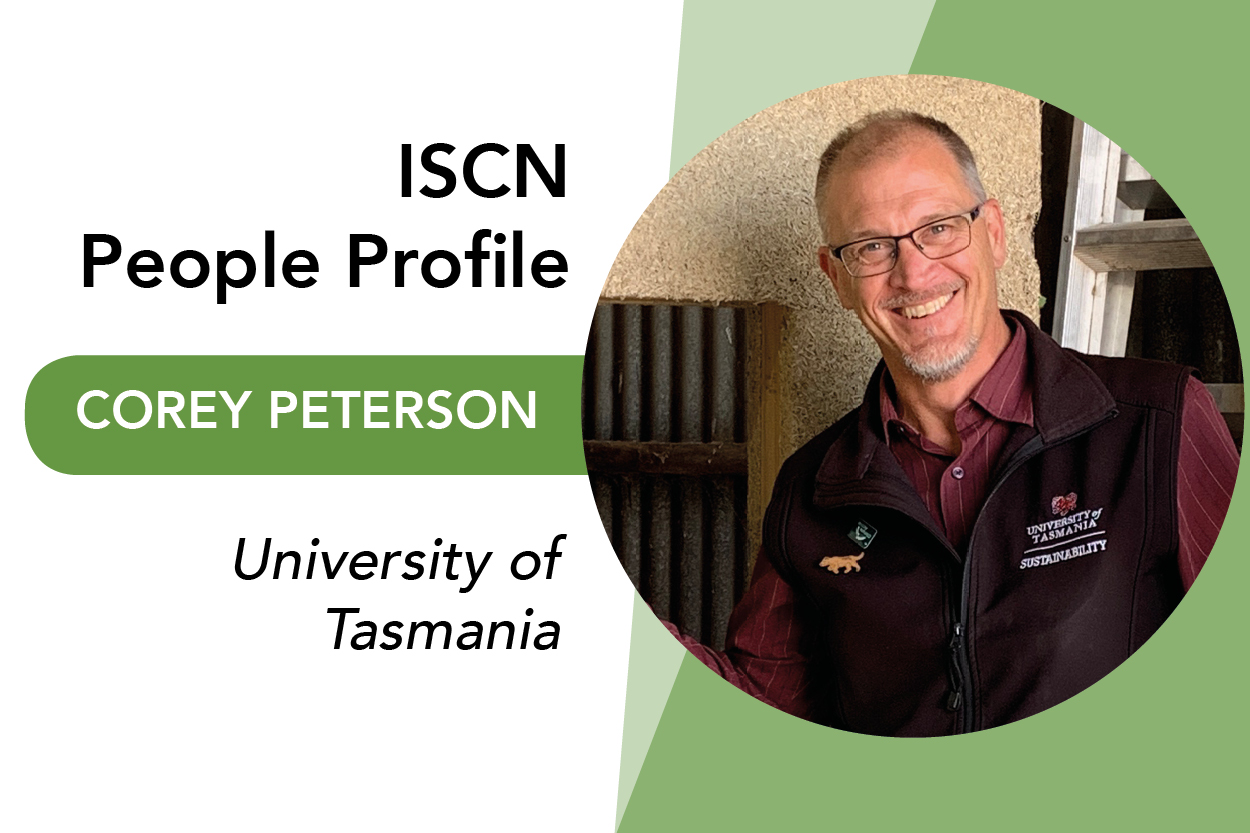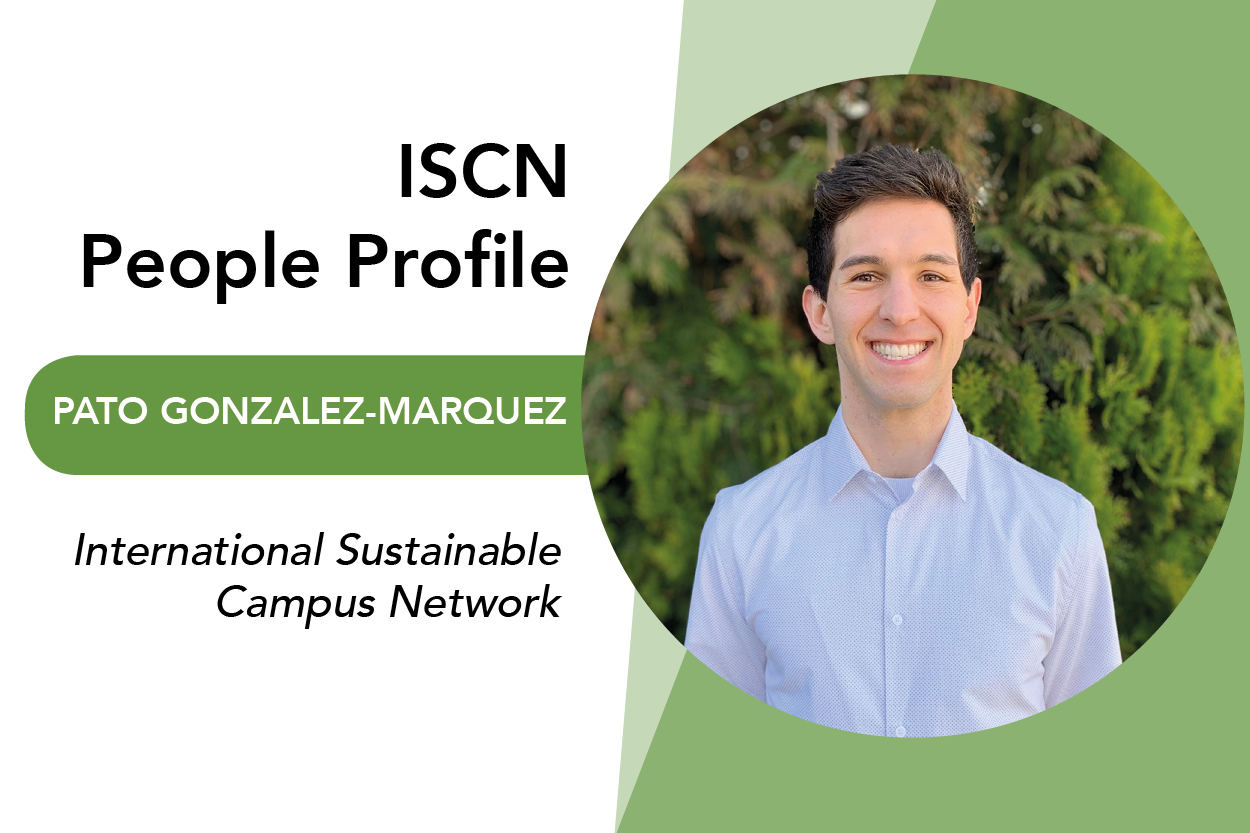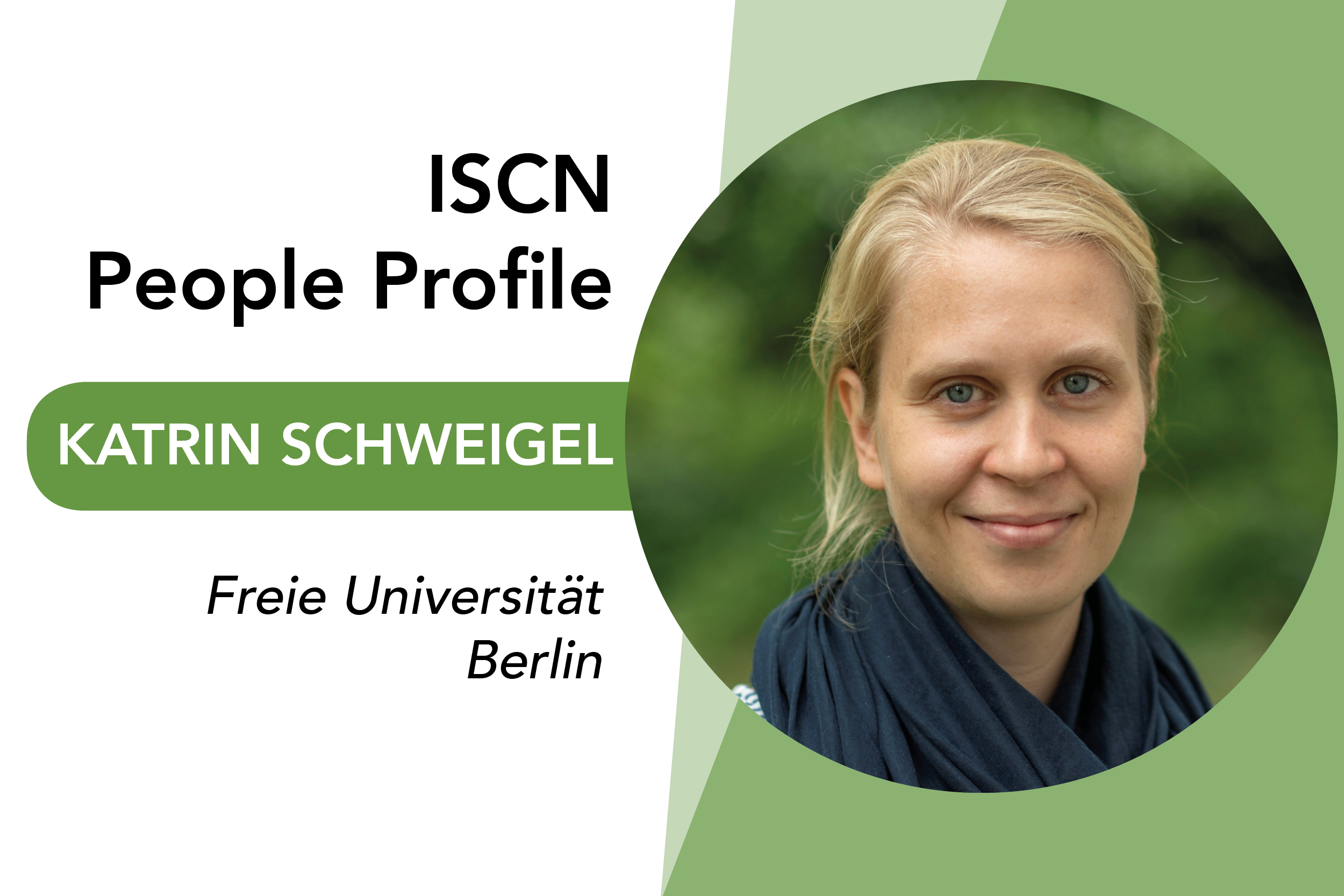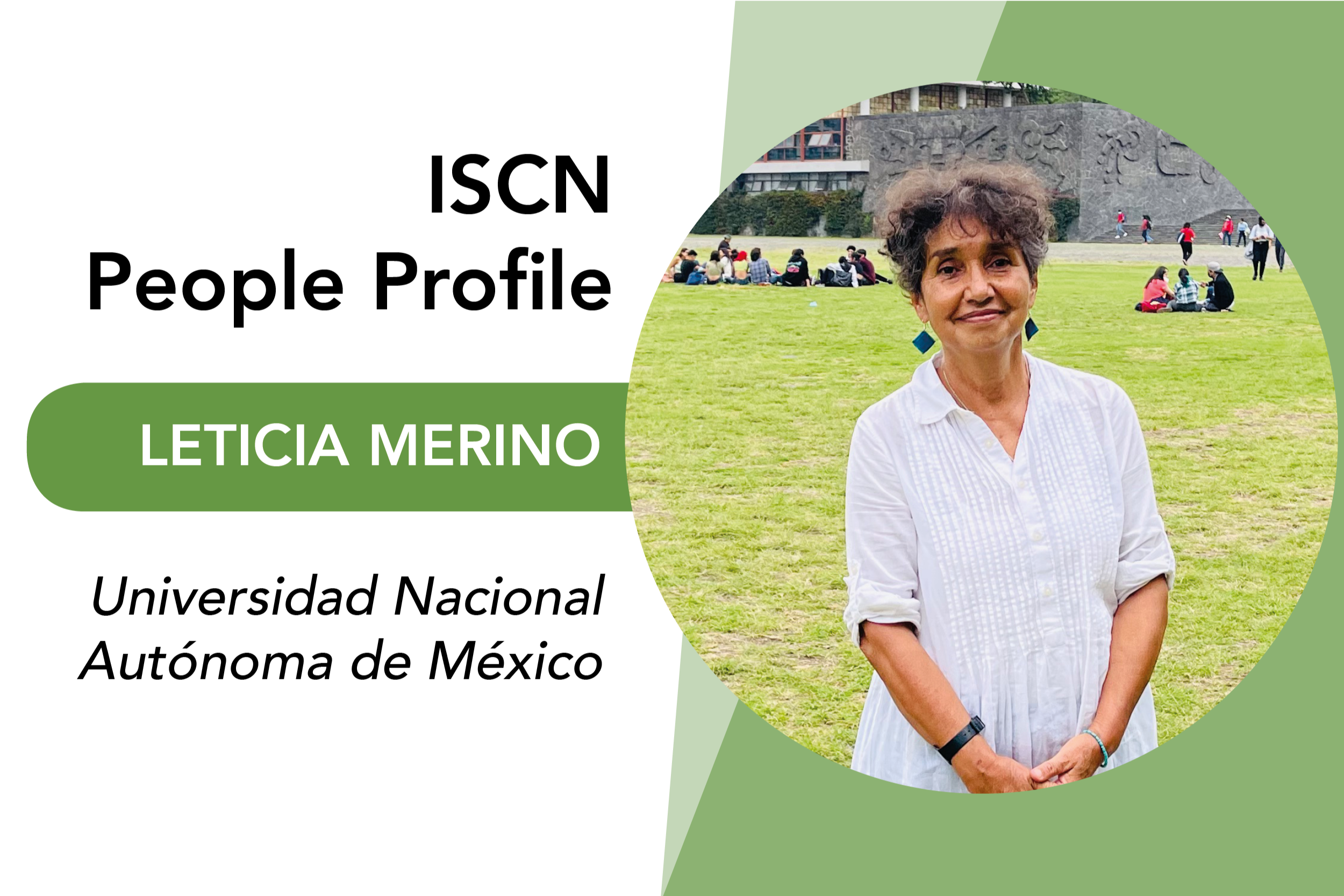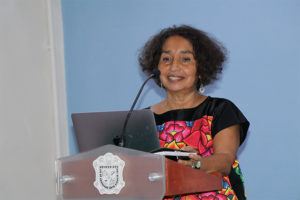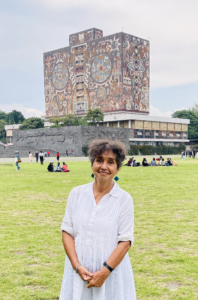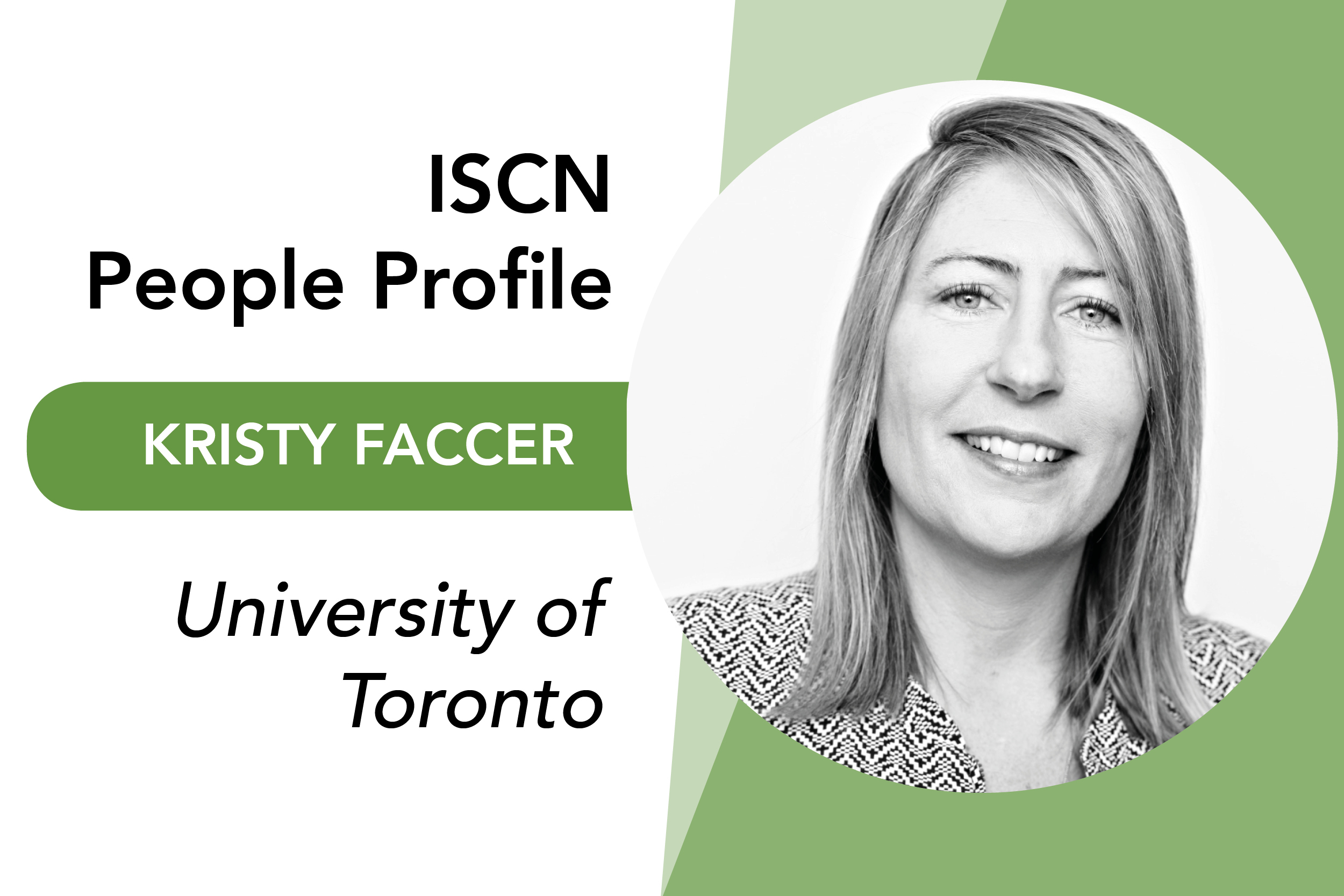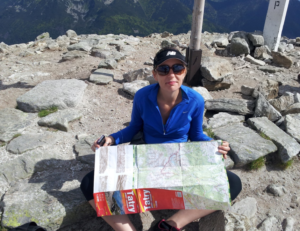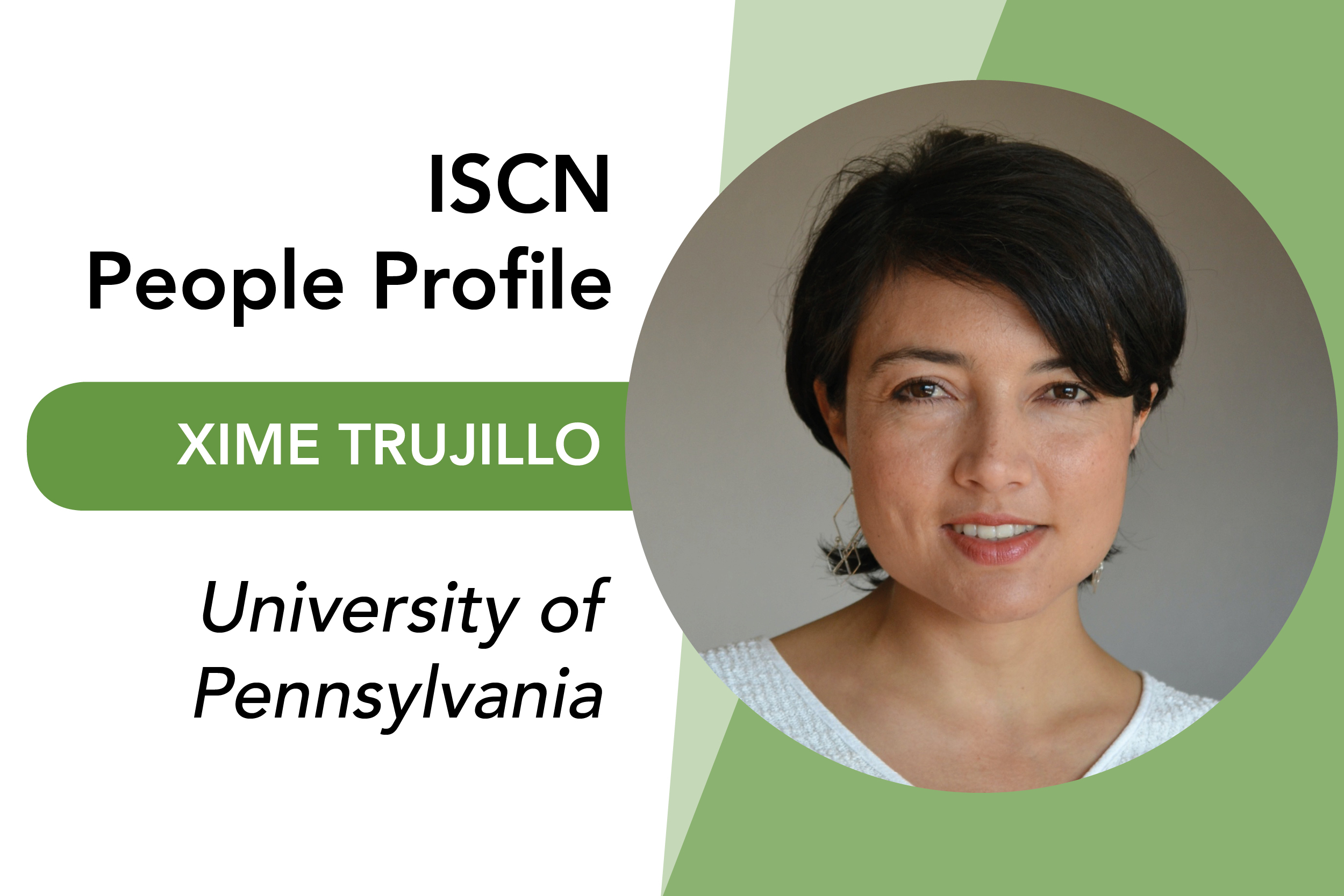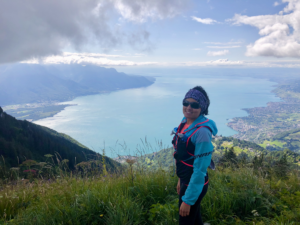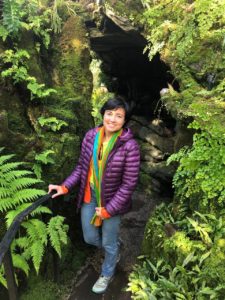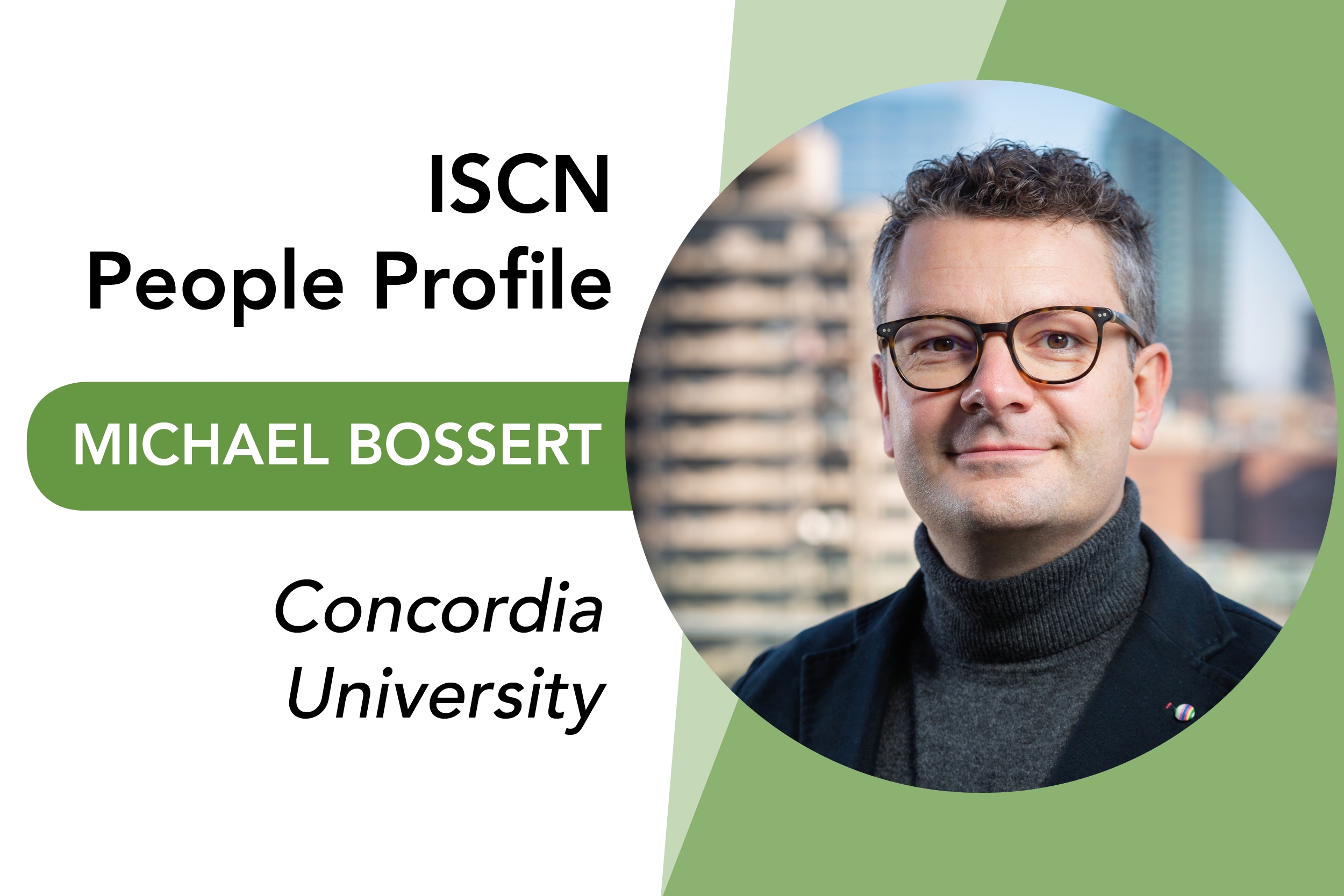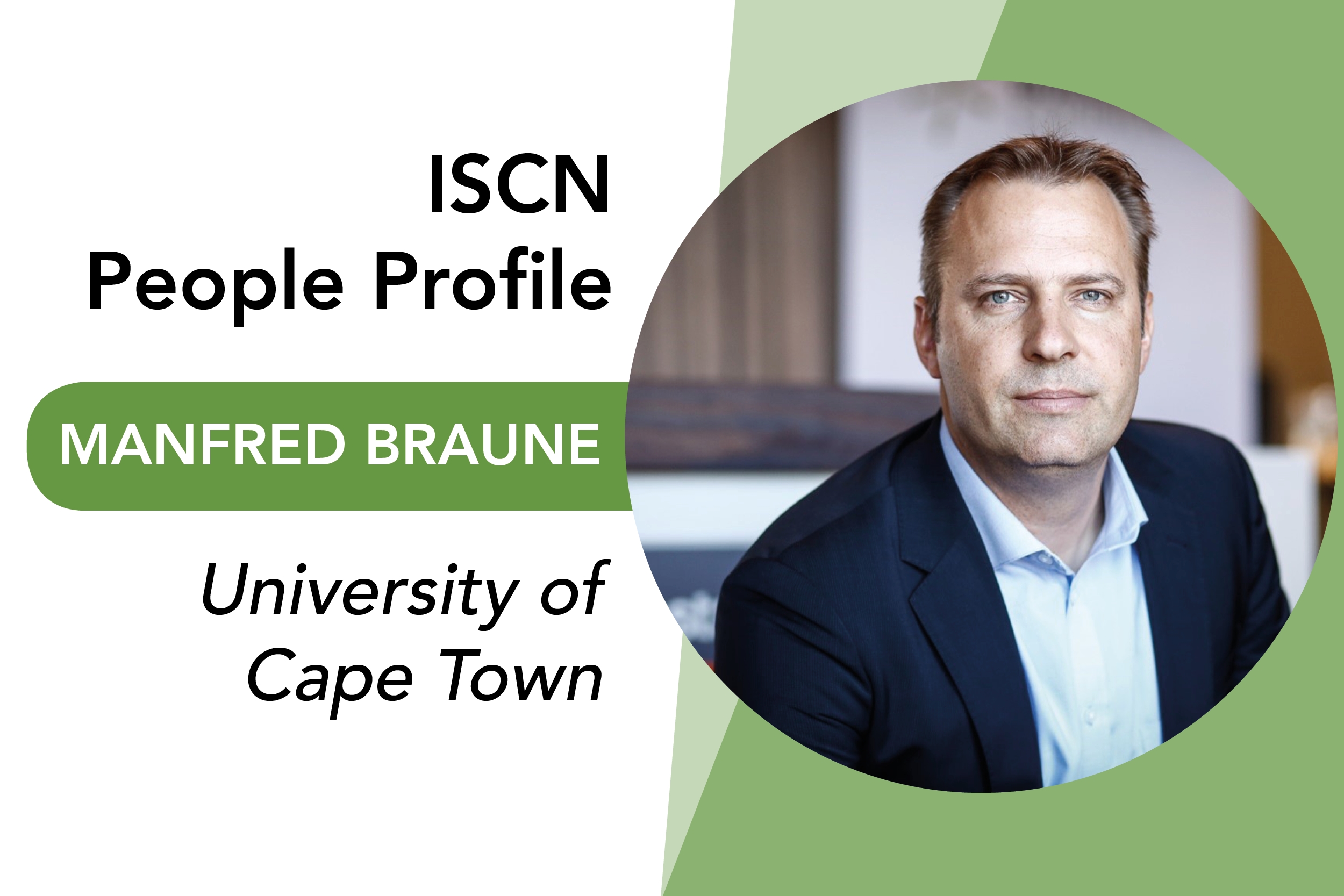Maryon Urbina
I have been the Director of the Sustainability Office at the Pontificia Universidad Católica de Chile (UC Chile) since 2018, and part of the university’s sustainability efforts since 2012. With a background in Business Engineering and a Master’s in Urban Development, I lead initiatives to foster a sustainability culture, campus management, community engagement, and institutional reporting.
Big Idea(s) for Advancing Sustainability in Higher Education
What does the world need most right now?
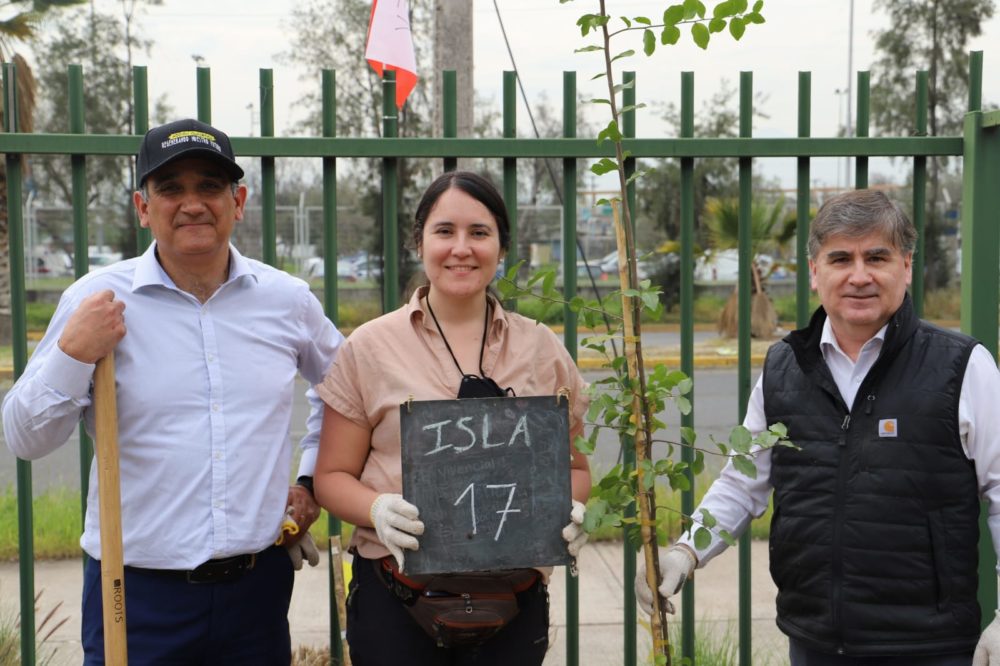
We live in an era of abundant scientific information—vast amounts of data, analysis, and projections about the challenges facing humanity, from climate change and biodiversity loss to numerous other environmental and social issues. Yet, we have still not made the necessary leap forward. I believe that what we need most today is a new planetary ethic—one rooted in an understanding of the interconnection and mutual dependence of all living beings. Only then can we, as a global society, move toward a new path of action that enables us to live in greater harmony. Of course, we need more ambition from governments and businesses, greater responsibility from civil society, and advanced technologies to help us transition to new ways of inhabiting the planet. However, none of this will be possible without a deep understanding of the living system to which we all belong.
Leadership and Inspiration
What is the best advice you have ever been given?
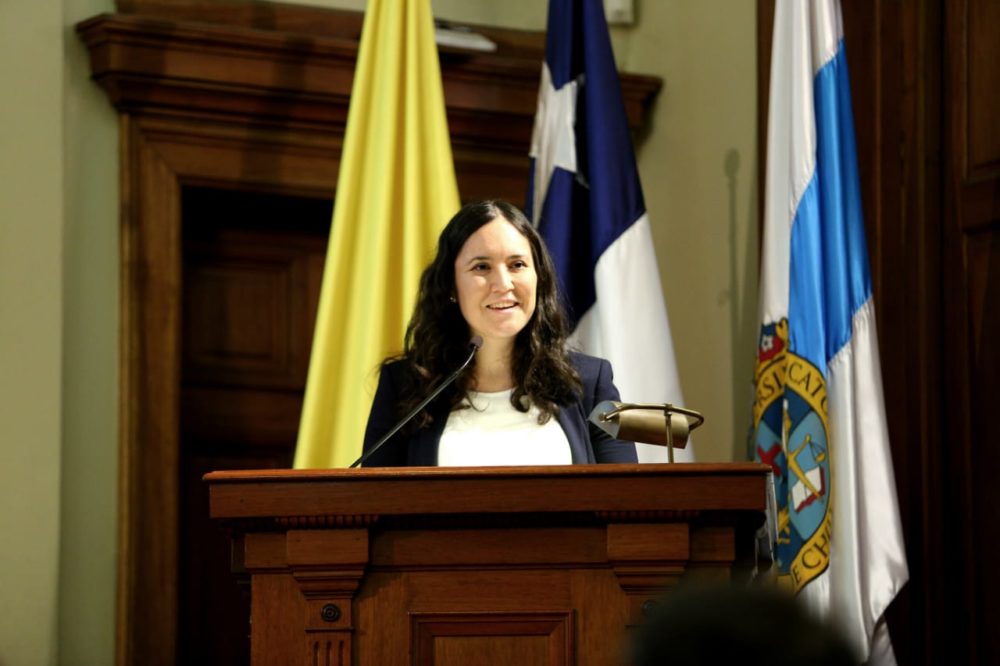
The most valuable advice—and lesson—I have received is that when tackling complex problems, the best first step is to ask meaningful questions. If you are fortunate to have engaged collaborators, these questions will steer collective intelligence toward higher levels of insight and innovation. I am deeply grateful for this wisdom and strive to apply it consistently.
Tenacity and Perseverance
The climate emergency feels like the greatest challenge of our lifetime – what keeps you inspired?
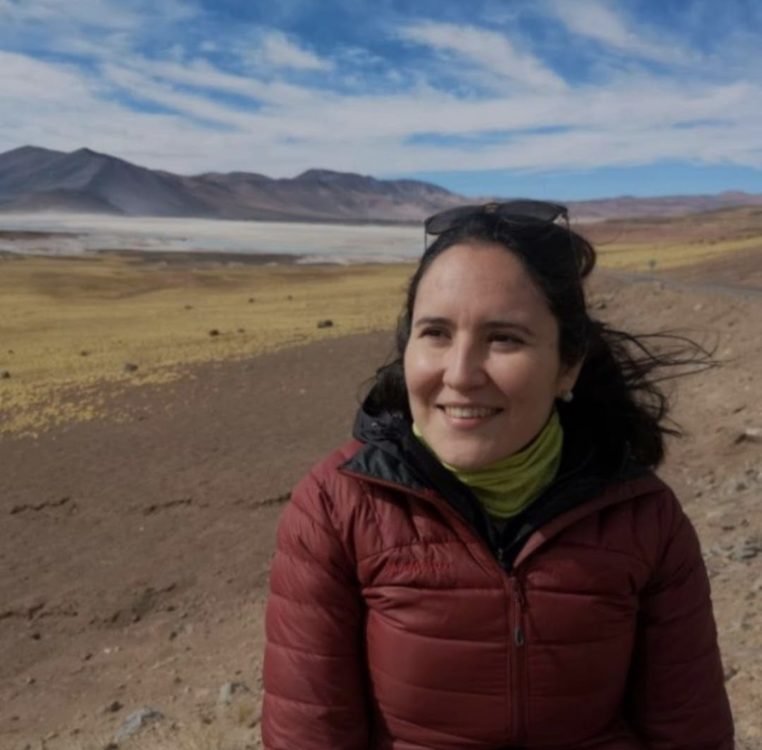
I believe my love for nature both moves and inspires me. Finding wonder in a mountain view, observing a bird in the city, or simply contemplating a plant in my office gives me the energy to continue working to preserve the beauty that surrounds us. I am fully aware of the scale of this challenge and recognize that, as humanity, shifting toward a new path will be difficult. Achieving it depends on all of us—each contributing, even in small ways. I deeply feel that we are part of a greater whole, and from that understanding comes a strong sense of responsibility to care for it—our shared home that sustains and nurtures life. On the other hand, when things feel discouraging—because we all have days like that—I find renewed energy in teaching. Seeing students engage with knowledge and embrace the call to be more conscious and take action revitalizes me.
Fun Fact
What is your favourite activity you do in your spare time?
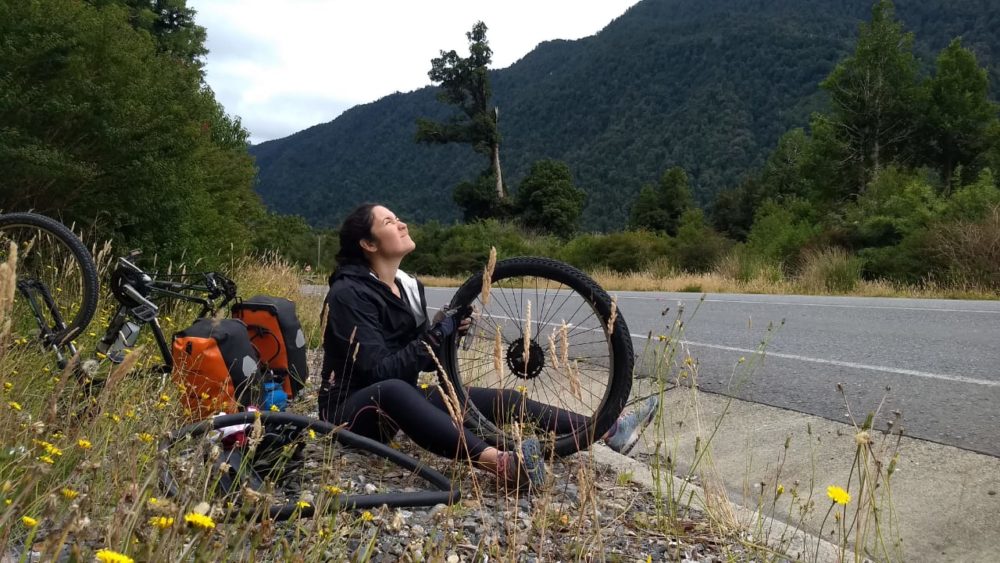
I love hiking in the hills and mountains, and I feel very fortunate to live in a city surrounded by them. I enjoy exploring on foot or by bike—sometimes as a sport and other times as a birdwatcher. Lately, I have also been experimenting with watercolor painting.
Paola Visconti
Since 2019, Paola Visconti has held various positions related to social responsibility, sustainable development, and climate change at Tecnológico de Monterrey. She has served as the leader of social responsibility at Tecmilenio and as the Sustainability Engagement Manager at Ruta Azul in the Office of Sustainable Development and Engagement. Paola is Co-leader of Ruta Azul, Tecnológico de Monterrey's Sustainability and Climate Change Plan. In this role, alongside key internal partners at Tec de Monterrey, she seeks to advance Ruta Azul aspiration to build a sustainable future by adopting a proactive culture in the face of the climate emergency, reflected in actions of MITIGATION, ADAPTATION, EDUCATION, RESEARCH AND OUTREACH, which will lead us to BE A MODEL OF A SUSTAINABLE INSTITUTION.
Big Idea(s) for Advancing Sustainability in Higher Education
What does the world need most right now?
In general terms, the world needs a rapid transition to renewable energy, systemic policy change and strong global agreements, investment in adaptation, and financing for climate action, restoration and nature-based solutions, just and equitable transitions and education for the climate emergency. We desperately need stronger cross-sector collaborations. Mostly, universities need to build a culture of sustainability and foster decision-making through the lens of sustainability.
Leadership and Inspiration
What does effective leadership look like to you?
Effective leadership means opening doors for others, making sure that people have the resources they need to advance their goals and objectives. A leader's job is not to tell others what to do, but to listen, to convene, to give opportunities and support others to achieve shared goals.

Tenacity and Perseverance
The climate emergency feels like the greatest challenge of our lifetime – what keeps you inspired?
The people I work with keep me inspired. I see people everyday that are working hard, in research, operations, education, fostering a culture of sustainability.
Fun Fact
What is a job that you have had that would surprise your colleagues?
For three years, I coordinated an early childhood program where we visited toddlers and their parents in their homes twice a week for 48 weeks to promote early literacy and strong positive parent-child relationships. This was in the South Bronx, New York with the Mexican community. I learned so much about resilience, family and community building.
Corey Peterson
Corey has worked at the University of Tasmania since 2010 advancing from Sustainability Officer to the inaugural Chief Sustainability Officer charged with advancing a holistic organisational sustainability agenda. He was on the University of Tasmania Governing Council from 2012-2020 and is the President of Australasian Campuses Towards Sustainability (ACTS).
Big Idea(s) for Advancing Sustainability in Higher Education
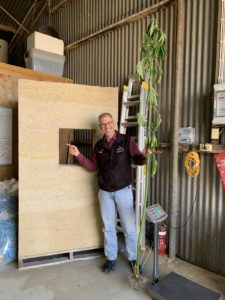 What does the world need most right now?
What does the world need most right now?
I think what the world needs most right now are informed and passionate leaders and changemakers who understand the complexity of wicked problems and can find a way forward to deliver a more inclusive and regenerated world. This need only just surpasses the need to empower the next generation of informed and passionate leaders and changemakers and, by acting in our capacities as leaders now to the best of our abilities, give them living examples of hope and a shared belief that the future can be good, just, and sustainable, and well worth striving for.
Leadership and Inspiration
What is the best advice you have ever been given?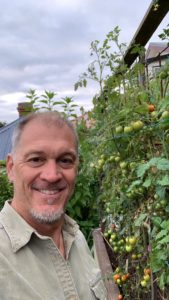
Never give up, positive change is often a long game and sometimes to get through the tough times it is best to view the situation as literally a bit of a game. This allows you to disassociate a bit, not take things personally, think both tactically and strategically to achieve the goal(s) you have for yourself, team, or organisation. So, although a game perspective is useful, try and think of a way to play that is not necessarily winner-takes-all.
Tenacity and Perseverance
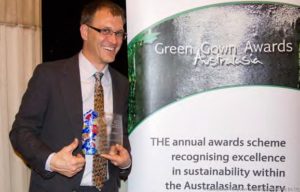
What would you tell others who are facing obstacles in their work?
The other bit of advice is to know you are in for the long-haul for regeneration and sustainability work (after all it took generations to get us into this collective predicament) so be ready to get into a perseverance mode. This should involve you knowing when and how to expend your energy (as well as care and compassion) and ensuring you regularly do what brings you solace and joy to re-energise. Part of this requires you to know yourself more objectively, which is where personality assessments and team role understandings are useful to understand how you think, react, and your own world view as well as the many ways others are in the world. I have found the Enneagram to be the most useful tool as you get a good feel for how you might (re-)act when things get stressful. Self-awareness is a very powerful tool.
Fun Fact
What is a job that you have had that would surprise your colleagues?
I supported a PhD project on penguin chick development in Antarctica that changed the course of my life (think Shirley Valentine!). The project involved activities like collecting adult regurgitate from their foraging before the chick got it (noting we minimised this obviously) to identify what constituted the diet and in what quantities. I also collected what came out of the chicks to get data on the feeding to growth rates (over-simplification!). There was some ‘tension’ with the pure scientists just wanting to know this and my more applied approach – how much krill and silverfish is required for Adelie penguins to maintain their population and how much does that mean humans could harvest sustainably. Reflective of my resource management background and being only one data point among that needed for such modeling, but it illustrates my thinking – that is how can we live within planetary limits without deleterious impacts on ecosystems.
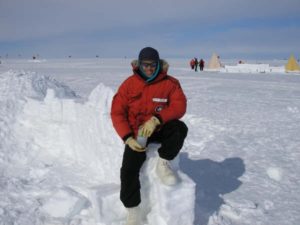
Pato Gonzalez-Marquez
Patricio (Pato) Gonzalez-Marquez is an ISCN Intern, currently completing a Master of Arts in Climate Action Leadership at Royal Roads University. Pato was born in Mexico City and immigrated to Canada at the age of 15 years old. Now, based in Victoria, British Columbia, Pato is a self-proclaimed climate nerd with a deep passion for communications and environmental psychology.
Big Idea(s) for Advancing Sustainability in Higher Education
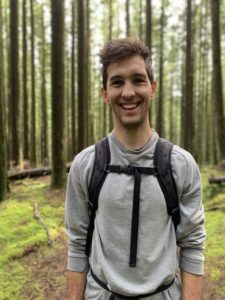 What does the world need most right now?
What does the world need most right now?
The world is in desperate need of empathy and connection. The increasing polarization of ideas regarding climate change has made it difficult to understand one another. Policies, actions, or ideas supported by some are heavily opposed by others, sometimes creating rivalries more divisive than a football match. However, a clear image may not be as clear when seen from a different perspective.
I believe our lack of understanding for others’ perspectives has created an environment where we look for those we agree with and alienate those who don’t. Finding common ground, as difficult as it may be, is crucial for solving a common problem. Perhaps learning from those with opposing perspective is the best way to understand and address everyone’s needs in the face of an uncertain future. Empathy and connection for one another and our shared planet is a must.
Leadership and Inspiration
What does excellent leadership look like to you?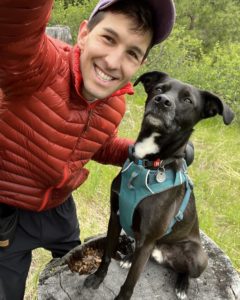
Excellent leadership can take many forms. I believe excellent leadership is primarily characterized by the ability to influence others to achieve a common goal. It is the ability to help others achieve a common objective, regardless of the obstacles in the way. However, in a world with overwhelming uncertainty, leadership becomes increasingly difficult. The skills of a good leader will be different depending on the task at hand, but a good leader will always guide others towards a common goal, especially in the face of uncertainty. Therefore, excellent leadership is to navigate unpredictable challenges and master uncertainty to achieve a common goal.
Tenacity and Perseverance
The Climate Emergency we face feels like the greatest challenge of our lifetime – what keeps you inspired?
In the face of imminent climate disruption what keeps me inspired are the people close to me. Spending time with friends and family, especially outdoors, takes my mind off the hardships of enduring climate action. Caring for others and enjoying our shared interests helps me cope with the difficulties of the climate emergency and keeps me inspired to continue striving towards actionable solutions.
Fun Fact
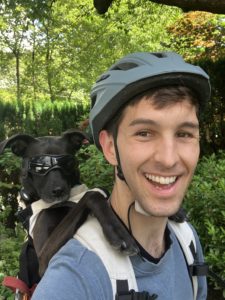 Favorite activity in your spare time?
Favorite activity in your spare time?
In my spare time, my favourite activity is training my dog Olly and going on long hikes with him. I love teaching Olly new tricks and seeing how excited he gets when exploring new places.
Katrin Schweigel
Katrin Schweigel manages the international sustainability networks for Freie Universität Berlin and facilitates strategic governance processes to realize the goals of the climate emergency declaration the university published in 2019.
Big Idea(s) for Advancing Sustainability in Higher Education
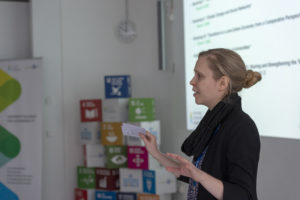 What does the world need most right now?
What does the world need most right now?
In my opinion, we need the determination to translate our knowledge of the climate and biodiversity crisis into concrete, serious action. Now this may sound a bit trivial. However ultimately, for me, this is the essence of the debates of the past decades: we have the scientific evidence, we have developed strategies, and now we need the will, the courage, and the resilience to implement them. That this will not be easy is clear, also because there are so many different interests and circumstances to consider. I recently read this old slogan that made me think about just that:
"Everyone said it couldn't be done, then someone came along who didn't know and did it.”
Leadership and Inspiration
What does excellent leadership look like to you?
Good leadership starts in my eyes with the ability to listen carefully. It is about bringing people together and creating an atmosphere of respect and trust. Leadership means to encourage people to reach to the best of their abilities - and it means to be able to have a good time together. The climate crisis confronts us as individuals, but also our institutions with huge tasks. Sometimes it all can seem too much. Leadership that motivates and shows how great it is to actually work on solutions to address these problems can build resilient and inspired teams.
Tenacity and Perseverance
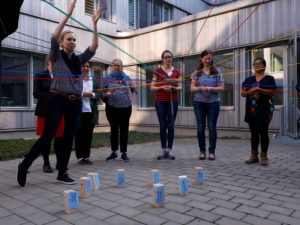 What is the biggest implementation barrier you see, what would you need to overcome it?
What is the biggest implementation barrier you see, what would you need to overcome it?
I am convinced that sustainability is a crosscutting task that must be addressed in all areas of an institution. Individual initiatives, projects or sustainability managers cannot achieve the level of implementation and institutional transformation that is needed in our time. One of the biggest challenges is to find a way of addressing diverse stakeholders in diverse areas that can trigger the motivation needed to think about sustainability in their day-to-day business. Be it in the planning of business trips, teaching or in green space management. Integrating sustainability into all areas, decisions and plans of a complex institution like an university requires a culture of sustainability - that is, a self-image of the university community that is characterized by visionary leadership on institutional level and intrinsic motivation of individuals.
Fun Fact
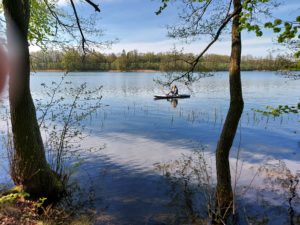 Favorite activity in your spare time?
Favorite activity in your spare time?
I love to spend my free time outdoors with my family. Exploring the forest, garden or playground together and (re)discovering the world through my little daughter's eyes is the greatest thing for me. Now in the approaching autumn you will find me again in the moor to watch cranes or in the forest looking for mushrooms!
Leticia Merino
Leticia Merino is a mother, grandmother, teacher, and activist. For many years, Leticia has dedicated her work to supporting forest communities in Mexico and has developed a strong passion for community conservation of biodiversity. Currently, she holds a position at the Coordination of Sustainability at the Universidad Nacional Autónoma de México (UNAM), where her focus lies in promoting sustainable campus management, as well as engaging in teaching and research on sustainability.
Big Idea(s) for Advancing Sustainability in Higher Education
What does the world need most right now?
In my opinion, the world is in urgent need of addressing and reversing the profound inequalities that exist among people and countries. The current levels of wealth and income inequality have reached unprecedented heights, leading to political imbalances and the capture of institutions and laws by elite groups, often conflicting with sustainability goals. In environmental terms, inequality translates to unequal access to essential natural resources like water and land, disproportionately affecting many in the global South. Additionally, there are significant disparities in the responsibility for environmental deterioration and the vulnerability to environmental change, with the poor bearing a disproportionate burden. Tackling these complex issues necessitates collective action, coordination, and cooperation at the local, regional, and global levels. To achieve this, we must prioritize processes of learning, mutual understanding, and equitable distribution of resources. Inequality breeds distrust, resentment, and even violence, obstructing the path to sustainable development.
Leadership and Inspiration
Tell us about a leader you admire and why?
One leader whom I deeply admire is Professor Elinor Ostrom, fondly known as Lin by those fortunate enough to have met her and learned from her. Lin spent many years as a teacher of Environmental Policy at Indiana University, where she founded the Workshop for Political Theory and Policy Analysis, a think tank that brought together scholars and students from around the world, fostering a culture of friendship and cooperation under Lin's guidance. In 2009, Lin became the first woman to receive the Nobel Prize in Economics.
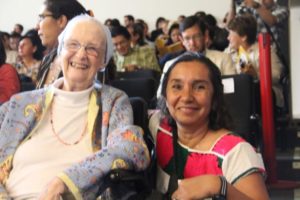
I admire Lin for her exceptional academic prowess, her ability to propose innovative frameworks for understanding the management and utilization of natural resources, her passion as an educator, and her commitment to addressing socio-environmental issues as an academic. Above all, I hold immense admiration for her humility, kindness, and incredible generosity as a mentor and friend. I cherish the memories I have of her.
Tenacity and Perseverance
The climate emergency we face feels like the greatest challenge of our lifetime – what keeps you inspired?
Undoubtedly, the challenge of climate change is immense, but it is just one facet of the broader global environmental crisis that includes biodiversity loss, pollution from plastics and other chemicals, deforestation, and the decline of fauna. What keeps me inspired is the firm belief that humanity must not lose hope. We must take urgent action and cultivate public awareness about these significant challenges of our time. I also firmly believe that we cannot afford to assume there is nothing we can do. The younger generation, including my beloved grandchildren, deserve to have hope and the ability to take action and become problem solvers. Encouraging their engagement is the most promising way to foster a foundation of hope.
Fun Fact
Favorite activity in your spare time?
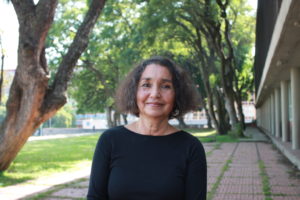 I have numerous favorite activities. I enjoy playing chess with my eldest grandchild, even though he now consistently wins after I taught him how to play years ago. I relish playing hide and seek with my youngest grandson, crouching under the table and hiding behind doors. I find solace and wonder in swimming, scuba diving, and snorkeling in the ocean, marveling at the silence and beauty of marine life. Playing ball with my energetic dog brings me joy, as does taking long walks in the mountains with my husband, and discussing new cooking recipes and ideas with him. I find peace in coloring mandalas with my son and take pleasure in cooking Mexican food and baking gluten-free cakes. Lastly, I indulge in reading—reading incessantly—while listening to samba and classical music.
I have numerous favorite activities. I enjoy playing chess with my eldest grandchild, even though he now consistently wins after I taught him how to play years ago. I relish playing hide and seek with my youngest grandson, crouching under the table and hiding behind doors. I find solace and wonder in swimming, scuba diving, and snorkeling in the ocean, marveling at the silence and beauty of marine life. Playing ball with my energetic dog brings me joy, as does taking long walks in the mountains with my husband, and discussing new cooking recipes and ideas with him. I find peace in coloring mandalas with my son and take pleasure in cooking Mexican food and baking gluten-free cakes. Lastly, I indulge in reading—reading incessantly—while listening to samba and classical music.
Kristy Faccer
Kristy Faccer is the first Director of the University of Toronto’s Presidential Advisory Committee on Environment, Climate Change and Sustainability (CECCS).
The CECCS has the ambitious mandate of transforming how the university and its partnerships contribute to sustainability. In some ways, this position is a bit of a homecoming for me as I started my career near Toronto and recently returned to Canada after living and working internationally for many years. I enjoy exploring new places, being outside and spending time with my colorful little pugs.
Big Idea(s) for Advancing Sustainability in Higher Education
Is there one thing you know now that you wish you had realized five years ago related to your work?
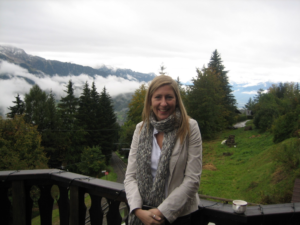 That the turn in universities towards institutional sustainability and leadership on climate could translate to ‘hybrid’ roles like the one I’m currently in. Most of my career has involved navigating the liminal waters between knowledge and action so that I could stay close to both. More and more, I find that universities are investing in people, partnerships and processes that benefit from experience in both research and practice, including on issues like climate change and sustainability. This is a promising development for universities and for their students who are looking for meaningful jobs that don’t limit their future career choices.
That the turn in universities towards institutional sustainability and leadership on climate could translate to ‘hybrid’ roles like the one I’m currently in. Most of my career has involved navigating the liminal waters between knowledge and action so that I could stay close to both. More and more, I find that universities are investing in people, partnerships and processes that benefit from experience in both research and practice, including on issues like climate change and sustainability. This is a promising development for universities and for their students who are looking for meaningful jobs that don’t limit their future career choices.
Leadership and Inspiration
What does excellent leadership look like to you?
I admire leaders that listen, are open to learning, and that lift the people up around them. I appreciate leaders that express humility and humanity and that have a good sense of humor.
Tenacity and Perseverance
The Climate Emergency we face feels like the greatest challenge of our lifetime – what keeps you inspired?
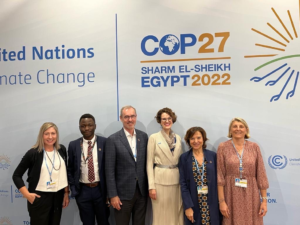 I’m inspired by the leaders and the everyday heroes that are fighting for climate at the coal face, despite so many other challenges in society and in their own lives. I’m inspired by those that chip away (and sometimes blast through!) that which seems impenetrable. I’m inspired by those that mobilize for change and find renewed motivation in examples and developments that seemed impossible at earlier points in my career.
I’m inspired by the leaders and the everyday heroes that are fighting for climate at the coal face, despite so many other challenges in society and in their own lives. I’m inspired by those that chip away (and sometimes blast through!) that which seems impenetrable. I’m inspired by those that mobilize for change and find renewed motivation in examples and developments that seemed impossible at earlier points in my career.
Fun Fact
What is a job that you have had that would surprise your colleagues?
For a few years, I worked for the International Union for Conservation of Nature (IUCN) as a Global Advisor on a project being delivered in over twenty countries and triple that number of regional business, government, and community partners around the world. My task was to work with fit-for-purpose local and global team members on what are now called nature-based solutions. The project was very much ahead of its time in connecting decision-makers to climate and biodiversity solutions that also contributed to local resilience and social and economic wellbeing. More than ten years on, I still find many of the lessons and experiences that came from that project relevant to the challenges we continue to grapple with today.
Xime Trujillo
Ximena (Xime) Trujillo is the Research Coordinator for the Environmental Innovations Initiative at the University of Pennsylvania.
I grew up in Colombia; traveling along the Andes mountains awoke my curiosity about the equilibrium between humans and nature. My drive is to articulate local actions with global goals, and this has led me to study environmental engineering and sciences. At Penn, I inform strategic growth through data-inspired projects to foster interdisciplinary research collaborations.
Big Idea(s) for Advancing Sustainability in Higher Education
What does the world need most right now?
Let’s imagine the world is a deserted island where you can only bring one thing; what would you bring? I will get a mirror. A simple object, yet powerful enough to communicate far reaching signals. Effective communication is critical for the advance of sustainability. I strive to make data-inspired projects informative by marrying content with form. Here, I dare to share 5 lessons learned so far to avoid the data-rich but information-poor scenario - so to speak! I like to keep these close as a reminder when needed.
- Make communication part of the process (plan for it).
- Set specific goals for your audience(s), and welcome feedback.
- Show the link between the evidence, the context and the call to action.
- Simplify complex arguments.
- Spread empathy so we can all deal with uncertainty together.
Leadership and Inspiration
What is the best advice you have ever been given?
"If you don’t fall, you don’t learn”. When I’m at the limit of my comfort zone, I remember this advice given to me by an unforgettable ski instructor. Thanks to these words, I learned not to fear falling and was set free to learn and improve. In sustainability, we often measure success in terms of outcomes; and we want to minimize mistakes. Yet, it is easy to forget that failure is part of any learning process. I believe that as long as we can learn from our mistakes, we are getting closer, instead of farther, to our purpose of being change-makers.
Tenacity and Perseverance 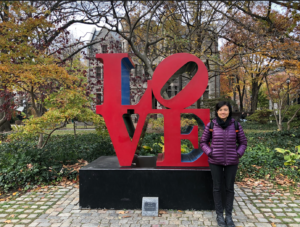
The Climate Emergency we face feels like the greatest challenge of our lifetime – what keeps you inspired?
Whenever my inspiration flicks, I come back to my network, and read my colleagues’ work. Getting connected through ideas to others open to sharing their knowledge and offering solutions makes me feel energized. I realize that the will to address the Climate Emergency is actually everywhere. You, I, and many others are part of Team Earth! As long as that team exists, its actions are my inexhaustible source of inspiration.
Fun Fact
What is your favourite activity in your spare time?
My favorite activity is trail running. I feel synchronized with the landscape, from a quiet morning stillness to a progressive heart-beating rhythm as the day progresses. Intensity variations zest my reward. Perhaps less intense, but also satisfying; I like getting things done. The weekend is when I tick all the chores off my list; these humble achievements also bring a heart-warming sense of accomplishment.
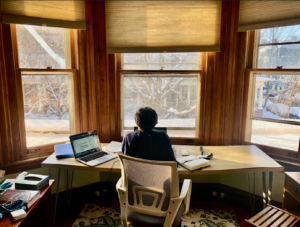
Michael Bossert
Michael Bossert is the Manager of Research Innovation and Business Development at the Next-Generation Cities Institute at Concordia University in Montréal.
Big Idea(s) for Advancing Sustainability in Higher Education
We have all had to adjust to how we are working over the last two years – any insights that are game changers for you?
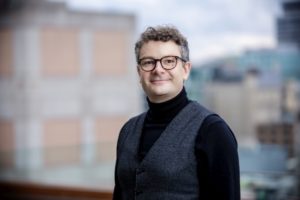 The last two years were a challenge for many reasons. In addition to the existing grand challenges and crises, a little virus managed to turn our world upside down. Overnight many habits got questioned, and it was/ is shocking how badly the crisis was managed internationally, nationally, and locally. Trustful information and knowledge based on scientifically approved facts were the main points for orientation. This fact and the role of being drivers in local innovation ecosystems and part of urban communities should play an important role in how we collaborate as universities with our ecosystems. It was possible to change our way of working and collaborating in a few hours. The pandemic has shown us how quickly we can adapt and the risks and limits. We should use this knowledge to develop tailored local adaptation pathways to deal with the climate and biodiversity crises. “The ability to innovate determines our destiny!” as Roman Herzog, a former German President, said. I am convinced that Institutions of Higher Education must play a key role in this transformation process.
The last two years were a challenge for many reasons. In addition to the existing grand challenges and crises, a little virus managed to turn our world upside down. Overnight many habits got questioned, and it was/ is shocking how badly the crisis was managed internationally, nationally, and locally. Trustful information and knowledge based on scientifically approved facts were the main points for orientation. This fact and the role of being drivers in local innovation ecosystems and part of urban communities should play an important role in how we collaborate as universities with our ecosystems. It was possible to change our way of working and collaborating in a few hours. The pandemic has shown us how quickly we can adapt and the risks and limits. We should use this knowledge to develop tailored local adaptation pathways to deal with the climate and biodiversity crises. “The ability to innovate determines our destiny!” as Roman Herzog, a former German President, said. I am convinced that Institutions of Higher Education must play a key role in this transformation process.
Leadership and Inspiration
What does excellent leadership look like to you?
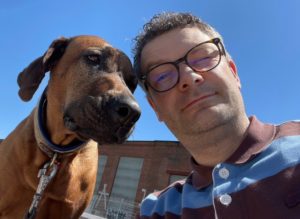 For me, good leadership is based on trust. This means it needs some time to grow and be nurtured continuously, as trust is hard to earn but easy to lose. A good recipe for leadership includes the following ingredients for me:
For me, good leadership is based on trust. This means it needs some time to grow and be nurtured continuously, as trust is hard to earn but easy to lose. A good recipe for leadership includes the following ingredients for me:
- Ability to listen
- Ability and willingness to change perspectives to understand problems and challenges better
- Ability to form a strong core team in which each member can play their strength and aligns with the purpose, and has the possibility to grow
- Transparent decision-making
- Capability of telling good stories and motivate others
- Finding quickly alternative solutions
- Being capable of giving credit and appreciation to others
- Staying excited and curious to be able to inspire others and be open to innovative ideas
- A pinch of self-irony
Tenacity and Perseverance
What is the biggest implementation barrier you see, what would you need to overcome it?
Let’s call the barriers challenges. The biggest challenge is our own comfort zone. We are used to habits, cultural and historical grown or just somehow developed routines that make us feel comfortable in our everyday life. It requires some kind of motivation to make a change and to get out of this comfort zone, try new things or habits and to evaluate them if they are better or worse than the business as usual. The key is to create a tailored motivation to convince people to engage and participate in the urgently required transformation process. I doubt that national plans with no possibility to have a buy in will drive the change. But the locally co-developed plans that will directly influence our neighborhood and city will be a game changer. Said so, the biggest implementation barrier is the lack of tailored motivation solutions in the right scale to influence our behavior.
Fun Fact
What is your favourite activity in your spare time?
I have loved snowboarding since my teenager years. However, the weak point of this pleasure is that it is only possible a few weeks a year, even while living in Montréal. At the beginning of the pandemic, I discovered the summer version of this pleasure in form of an electric skateboard. Since then, I ride my Boosted Board each free minute, use it to commute to work, going shopping, meeting friends, and discovering the Montréal Island. As Montréal is pretty ambitious concerning the transformation of the transportation infrastructure there is an extensively growing network of bike paths that are in a great shape, a perfect condition to discover and cross the city and the Mont Royal.
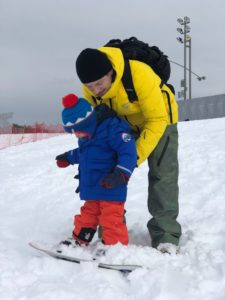
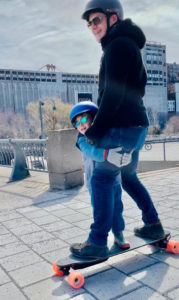
Manfred Braune
I love the outdoors, nature and the ocean, where I find myself a lot. This combined with a love for science and creativity led me to a career in engineering and green building design. In my role as Director: Environmental Sustainability I now have the ability to combine my love for the environment, science, creativity and the built environment, where I oversee the delivery of the University of Cape Town's overarching environmental sustainability strategy in all spheres of the university.
Big Idea(s) for Advancing Sustainability in Higher Education
What does the world need most right now?
The world needs action. There is unfortunately still way too much talking going on about solving critical environmental issues and too little action, in all sectors but especially in higher education (at least that is my view of the situation in South Africa). The world doesn't need another committee or conference, but rather the world needs higher education institutions to dedicate some of their time and resources towards tackling critical environmental issues, directly through the campus facilities and the campus community (this is obviously besides the research and teaching that goes on).
The world also needs more sharing to enable some of the action where resources are constrained. Some countries and universities have a lot more than others. Are there ways that universities that are well-resourced can establish green campus partner programmes that can provide support for periods of time? For example, a 6-month programme to share a senior resource at another university to support their green campus initiatives.
Leadership and Inspiration
What does excellent leadership look like to you?
Here are a few of the qualities of excellent leadership that stand out to me:
- Creativity: excellent leaders are creative and don't simply follow somebody else's plan, but they creatively come up with solutions that can tackle the problems that nobody else has been able to overcome.
- Courage: excellent leaders have the courage to go against the grain/mainstream, when everyone says do this, they are prepared to step up and do something different or question the mainstream if they know it will produce a better result.
- Humility: excellent leaders are humble and quick to acknowledge all their team members and the incredible work that everyone does to contribute to a project's success, and respects and welcomes contributions from all kinds of diverse backgrounds.
- Honesty: excellent leaders are honest with themselves and with others about who they are and what they are capable of, including setting boundaries where appropriate and acknowledging failures/mistakes.
Tenacity and Perseverance
What would you tell others who are facing obstacles in their work?
We all typically face some kinds of obstacles in our work and life. I like to face them head on, but with plenty of preparation and planning beforehand, and, if you are a person of faith in God, like me, some prayer. So, collect as much information about the obstacle and gather ideas from others, and come up with a plan to tackle the obstacle. If the plan fails, try again. If the plan fails again, try another plan. Sometimes it helps to step away from the obstacle for a while and come back in future to tackle it, and for some reason then it can be overcome. The key is to not let the obstacle overcome you or to defeat you, but to keep trying or to shift your focus onto something else (if possible) and come back later.
Fun Fact
What is your favourite activity in your spare time?
One of my favourite things to do is surfing or swimming on a wave in the ocean, preferably without a wetsuit, even if it's cold - I love the feeling of gliding over or through beautiful waves with the beach and the mountains next to me, celebrating God's beautiful creation. If I can't do that, then I'll grab my skateboard and try to get as close to that as possible on the pavement! :-) Besides that, I love hanging out with my wife and two daughters, as well as with friends, and playing soccer and field hockey.
